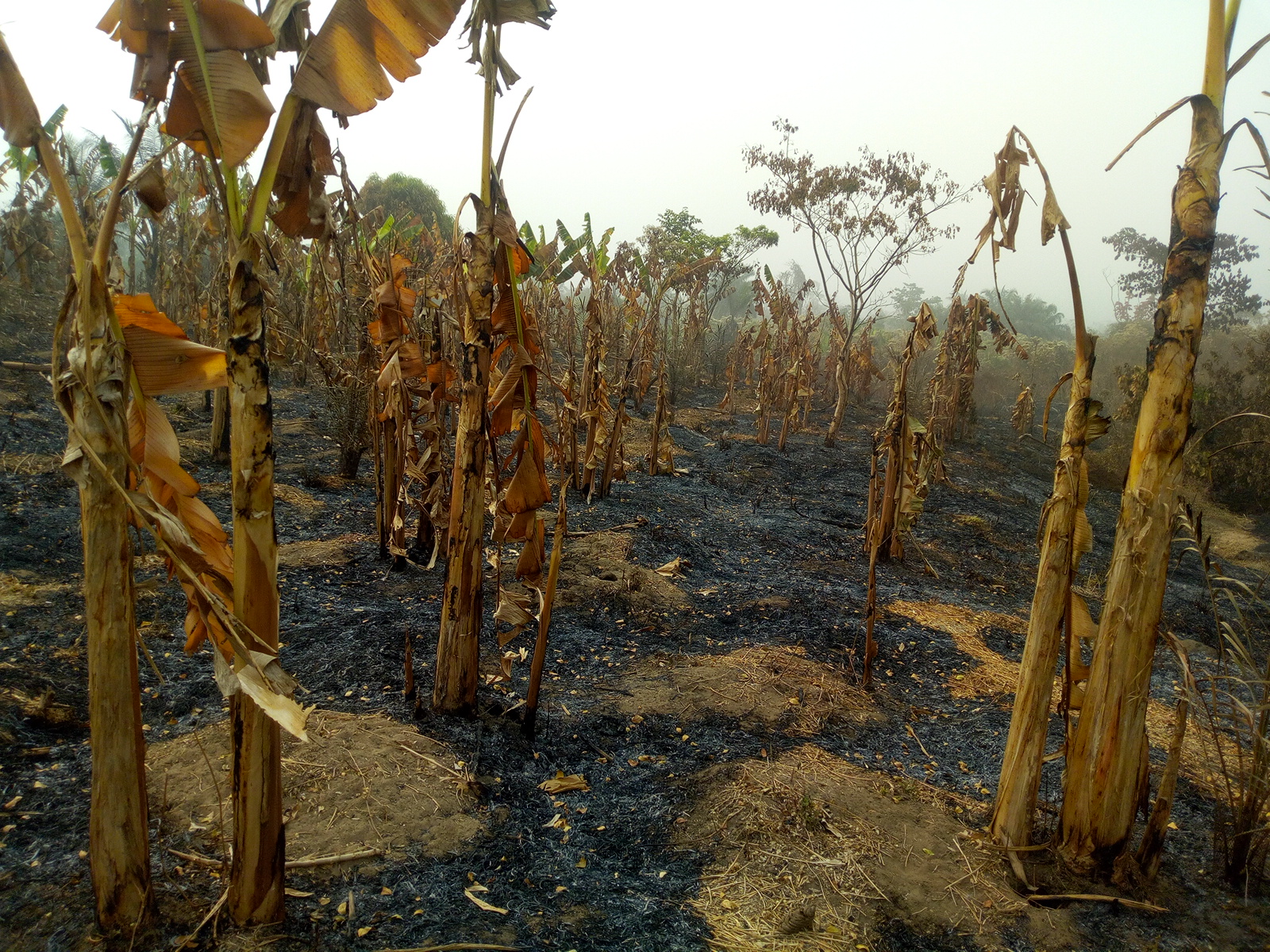Bush burning is a common practice in Nigeria, especially in the northern and southern parts of the country. It is done by farmers to clear land for cultivation and to remove dry grasses and leaves that can cause a fire outbreak. However, the indiscriminate nature of bush burning has become a major threat to food security in the country.

Incessant bush burning has a significant impact on the environment and agricultural productivity. It degrades soil quality, reduces the fertility of the land, and damages crops, leading to a decrease in agricultural productivity. In Nigeria, where agriculture is the backbone of the economy, the impact of bush burning on food security cannot be overemphasized.

One of the most significant impacts of bush burning on food security is the destruction of crops. When farmers burn their land to clear it for cultivation, the fire can get out of control and spread to neighboring farms. This can destroy crops and farmland, leading to reduced yields and, in some cases, total crop failure. This can have devastating effects on the livelihoods of farmers, as well as on the food supply chain.

In addition to destroying crops, bush burning also degrades the quality of the soil. The high temperature of the fire can kill beneficial microorganisms in the soil, reducing its fertility and making it difficult for crops to grow. This can lead to reduced yields and lower crop quality, which can have an impact on the overall food supply.

Furthermore, bush burning can cause air pollution, which can have a negative impact on human health. The smoke from the fire contains harmful particles and chemicals that can cause respiratory problems, especially in vulnerable populations such as children, the elderly, and people with pre-existing respiratory conditions.
To address the issue of bush burning and its impact on food security, there is a need for a multi-faceted approach that involves farmers, government agencies, and other stakeholders. First, there is a need for increased awareness among farmers about the negative impact of bush burning on the environment and agricultural productivity. Farmers need to be educated on alternative land-clearing methods, such as using manual labor or mechanical means, that are less harmful to the environment.
Second, there is a need for stricter enforcement of laws against bush burning. The government should enact and enforce laws that prohibit bush burning and impose penalties on those who engage in it. This can help to deter farmers from engaging in the practice and promote responsible land management practices.
Third, there is a need for increased investment in research and development to develop alternative land-clearing methods that are more environmentally friendly and sustainable. This can include the development of new technologies such as no-till farming, which minimizes soil disturbance and reduces the need for land clearing.
In conclusion, the incessant bush burning in Nigeria poses a significant threat to food security in the country. The negative impact of bush burning on the environment, agricultural productivity, and human health cannot be ignored. To address this issue, there is a need for a multi-faceted approach that involves increased awareness among farmers, stricter enforcement of laws against bush burning, and increased investment in research and development to develop alternative land-clearing methods. By taking these steps, Nigeria can promote sustainable land management practices that support food security and protect the environment.



